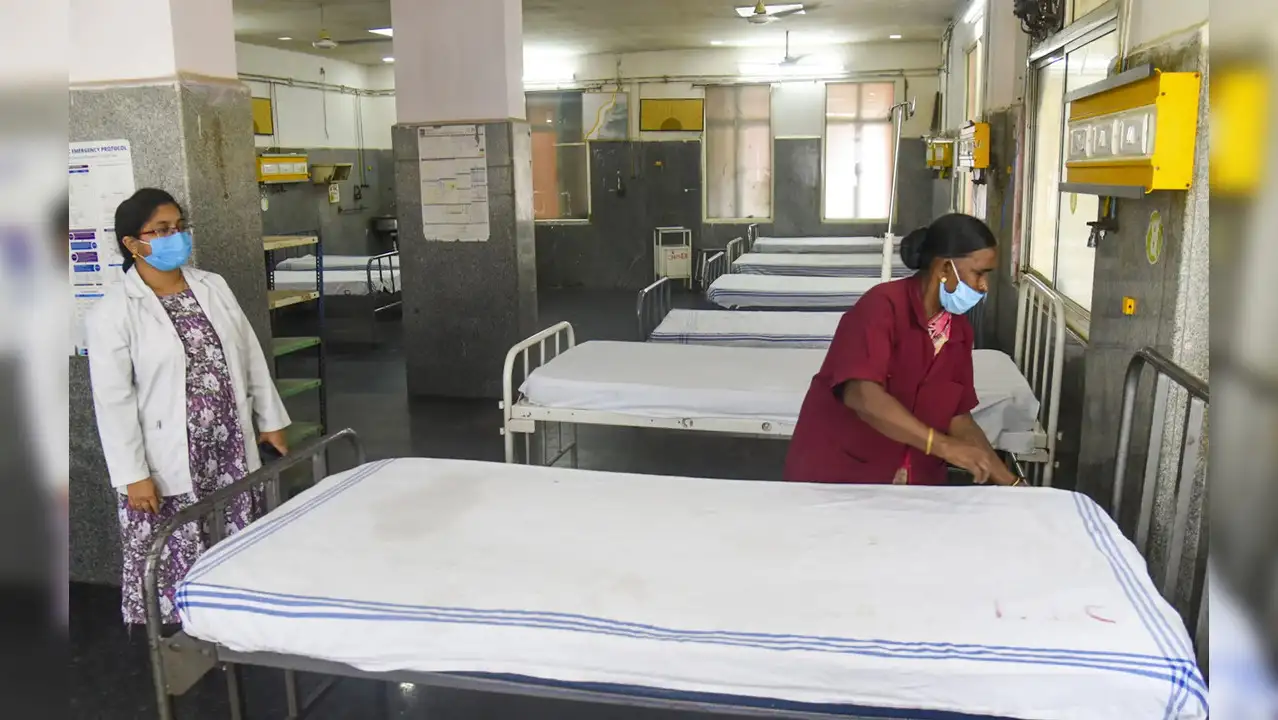
While the exact cause of death is yet to be disclosed, the case has triggered fresh concerns among the public.
Photo : PTI
A 40-year-old man from Firozabad, Uttar Pradesh, who had tested positive for COVID-19, died in Chandigarh, making it the city’s first COVID-related death in the recent months. The patient was admitted to the COVID ward of the Government Medical College and Hospital (GMCH), Sector 32, after being referred from Ludhiana.
Authorities have not released any official statement confirming or denying underlying health conditions or details about the COVID-19 variant he may have been infected with. Times Now reached out to the Government Medical College and Hospital in Chandigarh for an official comment on the case, but there has been no response so far.
While the exact cause of death is yet to be disclosed, the case has triggered fresh concerns among the public. Until now, COVID-related fatalities in the ongoing wave have largely been linked to serious health conditions.
Pulmonology departments across India have seen a noticeable uptick in patient footfalls in recent weeks, with many people reporting mild respiratory symptoms and seeking reassurance. Doctors attribute this surge more to public anxiety than to the severity of the illness itself.
Health experts continue to reiterate that while COVID-19 hasn’t disappeared, the currently circulating variants in India are not causing severe outcomes in most cases. The illness is largely presenting as a mild, upper respiratory infection that is being managed effectively with symptomatic treatment. Doctors have urged people to remain cautious but not to panic. As for vaccinations, no new recommendations have been issued yet. Experts are closely monitoring the situation but are not advising fresh vaccine doses for any group at the moment.
Understanding the Link Between Comorbidities and Severe COVID-19 Outcomes
It's well understood that people with comorbidities such as diabetes, hypertension and heart conditions face a higher risk of developing severe complications from COVID-19. Even obesity puts you at risk. These underlying health issues can weaken the immune system and make it harder for the body to fight off infections.
Dr. Shrey Srivastav, Consultant Physician at Sharda Hospitals explains, “We have observed that patients with existing conditions like diabetes, high blood pressure or heart ailments tend to experience more severe outcomes. The COVID-19 virus can exploit these vulnerabilities, significantly worsening the patient’s condition.” He strongly advocates for people with comorbidities to get vaccinated against COVID-19 to help reduce the risk of severe illness and hospitalisation.
However, not all experts fully agree on the urgency of COVID vaccination at this point. Dr. Arjun Khanna, Head of Pulmonology, gives a more measured perspective. “We shouldn’t panic unnecessarily,” he says. “Right now, the focus should shift more towards flu vaccination, which is seasonally relevant and can help reduce respiratory illnesses during this time.”
Despite the differing opinions on vaccination priorities, both doctors agree on one thing: people with comorbidities need to remain cautious. The key takeaway is to stay informed, be vigilant about symptoms and continue managing any underlying health conditions carefully.
Top COVID symptoms
COVID-19 symptoms can range from very mild to life-threatening. Common mild symptoms include fever, headache, sore throat, cough, diarrhea, vomiting, loss of taste or smell and muscle aches. In some cases, the symptoms can be more serious such as difficulty breathing or abnormal chest scans. When the virus affects the lungs, oxygen levels can drop below 94 per cent. People with oxygen levels under 94, a breathing rate over 30 breaths per minute or lung involvement greater than 50 per cent fall into a more severe category. The most critical cases involve complications like respiratory failure, septic shock, or multiple organ failure.
